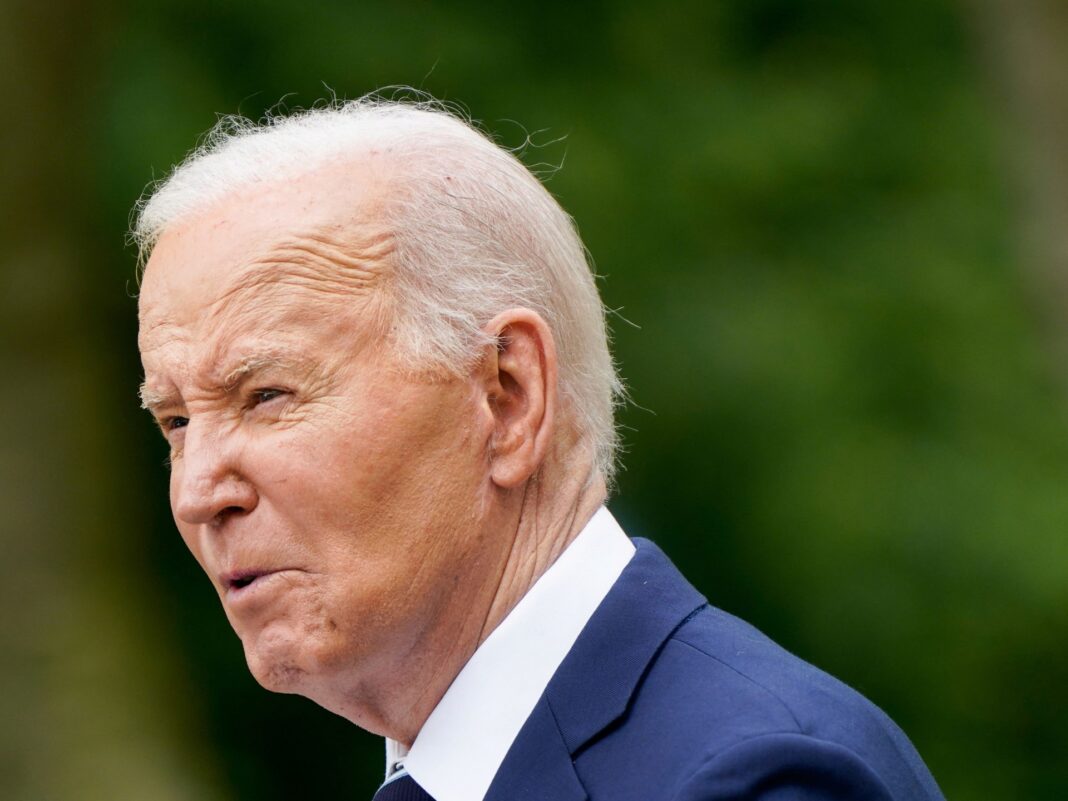United States President Joe Biden and his Republican challenger Donald Trump have agreed to a CNN-hosted debate in late June, the US media outlet said, as the rivals traded barbs on social media about the prospect of the showdown.
In a post on X, Biden said on Wednesday morning that he had received and accepted an invitation from CNN to debate Trump on June 27. “Over to you, Donald. As you said: anywhere, any time, any place,” he wrote.
CNN reported that a Trump campaign official later said the former Republican president also accepted the offer.
The move came just hours after Biden challenged Trump to two debates before November’s election but said he would bypass a traditional debate schedule set by a bipartisan commission.
“Donald Trump lost two debates to me in 2020, and since then, he hasn’t shown up to a debate,” Biden said in a video posted online earlier in the day. “Now he’s acting like he wants to debate me again. Well, make my day, pal. I’ll even do it twice.”
Donald Trump lost two debates to me in 2020. Since then, he hasn’t shown up for a debate.
Now he’s acting like he wants to debate me again.
Well, make my day, pal. pic.twitter.com/AkPmvs2q4u
— Joe Biden (@JoeBiden) May 15, 2024
Biden had called on Trump to join him for two televised presidential debates in June and September.
His proposal, outlined in a letter and a video, called for direct negotiations between the Trump and Biden campaigns over the rules, network hosts and moderators for the one-on-one meetings.
Trump responded swiftly, writing on his Truth Social media platform that he is “Ready and Willing to Debate Crooked Joe” on the proposed dates.
“I would strongly recommend more than two debates and, for excitement purposes, a very large venue, although Biden is supposedly afraid of crowds – That’s only because he doesn’t get them,” Trump wrote.
“Just tell me when, I’ll be there. ‘Let’s get ready to Rumble!!!’”
Most polls show a tight race between Biden and Trump, the presumptive Democratic and Republican presidential nominees.
Experts say the contest will likely come down to how the candidates fare in critical swing states, such as Michigan, Georgia and Nevada.
But there is also widespread frustration that the choice this election cycle is the same as in 2020 when Biden defeated the then-incumbent Trump to win the White House.
A recent Pew Research Center poll found nearly half of all registered voters said they would replace both Biden and Trump on the ballot if they could.
About two-thirds of respondents said they had little to no confidence that Biden is physically fit enough to be president while a similar number said they did not believe Trump would act ethically in office.
“It is Election 2.0,” Jan Leighley, a political science professor at American University in Washington, DC, told Al Jazeera this month.
“I think that creates a disincentive for voting, which again comes back on the campaigns to convince people that, even though it’s the same choice, there’s still a reason to vote.”
Both candidates also face serious challenges before the election.
Trump is currently in court on accusations he falsified business documents to conceal hush money payments made to an adult film star – one of four criminal indictments against the former president.
Biden, for his part, has faced widespread criticism and public anger for his support of Israel during the Gaza war with key segments of his Democratic Party base saying they would not vote for him if he doesn’t change his stance.
Trump, who refused to debate his rivals in the Republican primary race, has in recent weeks been challenging Biden to engage in a one-on-one match-up, offering to debate the Democrat “anytime, anywhere, anyplace”.
On Wednesday, the Biden campaign explained its decision to eschew the traditional debate schedule in a letter to the Commission on Presidential Debates, a nonprofit that has sponsored US presidential debates since 1988.
“The Commission’s schedule has debates that begin after the American people have a chance to cast their vote early, and doesn’t conclude until after tens of millions of Americans will have already voted,” the campaign wrote.
It also said the commission’s model of holding debates with large, in-person audiences “simply isn’t necessary or conducive to good debates”.







